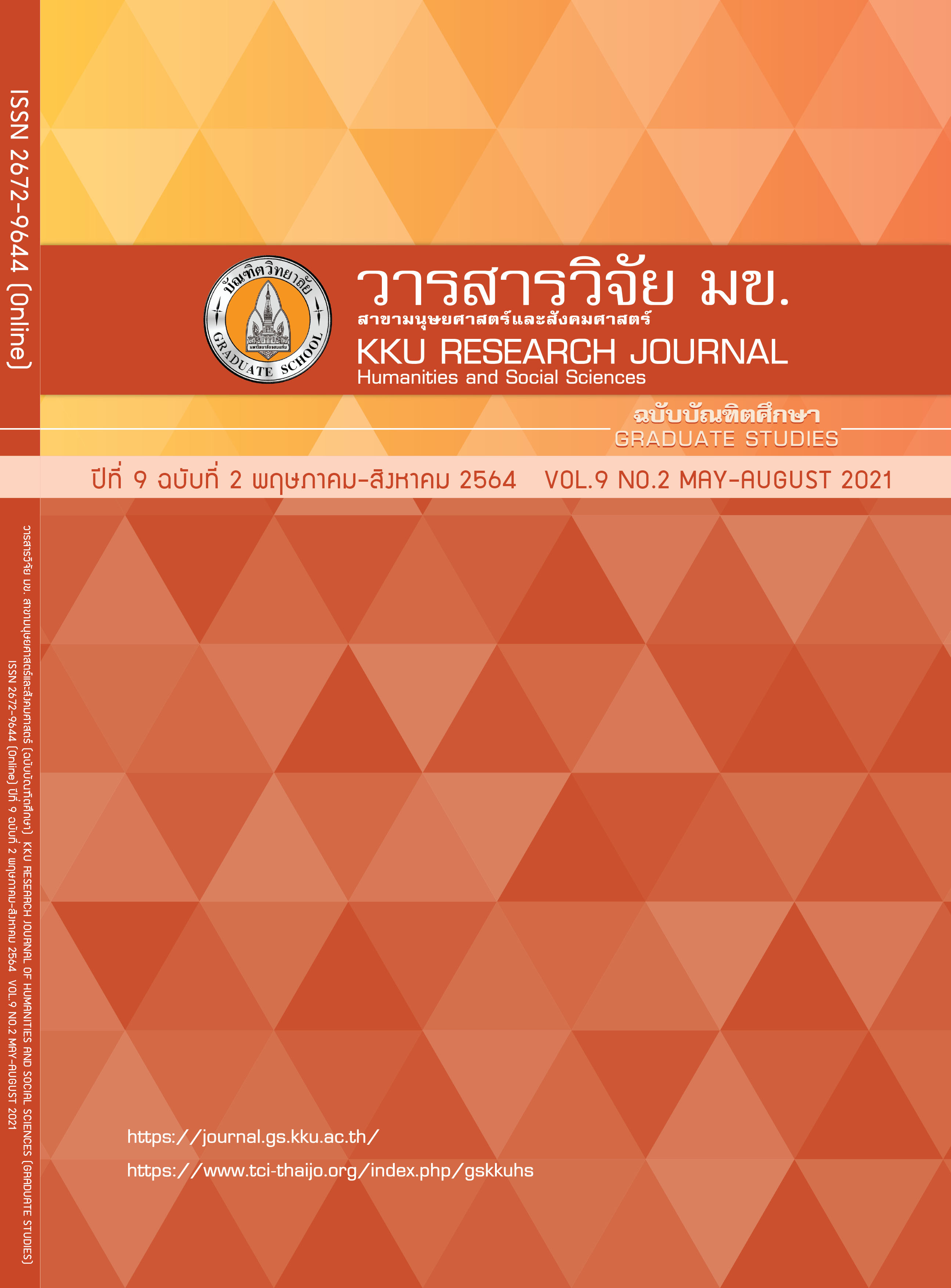A Study of Community Participation in Community Learning Centers in the Kingdom of Cambodia: Components and Issues of Community Participation
คำสำคัญ:
Community Participation, Community Learning Center, Components of community participationบทคัดย่อ
This descriptive research study aims to analyze the components of community participation in community learning centers in the Cambodian context and to study the problems of community participation in community learning centers in Cambodia. Besides, this research utilizes three main techniques to respond to research objectives, and those techniques are an in-depth interview with 03 experts in the field of non-formal education, conducting semi-interview with 06 community people (03 in Tboung Khmoum and 03 in Phnom Penh), and using observation.
The result of the research is 1). There are eight components of community participation in community learning centers in the kingdom of Cambodia such as utilizing services, resource mobilization, attending programs, diagnosing needs, planning programs, implementation, monitoring and evaluation, and decision making demonstrating that the previous components of participation are quite out-of-date and not so practical to imply in current situation; and 2). There are many problems of community participation in community learning centers in Cambodia, such as the lack of knowledge, confidence, trust in the CLCs, Cambodian cultures, unattractive of the program, disoriented career pathway, deficiency of trainers and teachers, family burdens, and migration. Hence, those issues of community participation, the governments, and relevant stakeholders should have taken into their accounts to alleviate the impacts of those problems.
Keywords: Community participation, Community learning center, Components of community participation
เอกสารอ้างอิง
Bangkok U. Community Learning Centres Country Report from Asia. UNESCO Asia and Pacific Regional Bureau for Education. 2008.
Education DoN-F. Report on Non-formal Education, 2014. Cambodia: Ministry of Education, Youth and Sport; 2014.
UNESCO. Sustainability of community learning centers: community ownership and support. Bangkok: UNESCO Asia and Pacific Bureau for Education; 2011.
UNESCO. Completion Report of Action Research on Community Based Continuing Education2001.
UNESCO. Manual for the implementation of community learning centres1999. 94 p.
Aziz S, Raza SF. Guide /Manual for Community Learning Centers Bunyad Literacy Community Council, Lahore 2001. 177 p.
DNFE. Community Learning Centers in Cambodia. MOEYS. 2000.
UNESCO. Strengthening community learning centers through linkages and networks: A syntheses of six country reports. UNESCO BANGKOK. 2007.
UNESCO. Global Education Monitoring Report France: UNESCO; 2015 [Available from: https://en.unesco.org/gem-report/sdg-goal-4.
MOEYS. Manual for management of community learning centers (CLC). Department of Non-formal education of MOEYS. 2014.
Arnstein SR. A Ladder Of Citizen Participation. Journal of the American Planning Association. 1969:2216-224.
Shaeffer S. Participation for educational change: a synthesis of experience. Paris: UNESCO: International Institute for Educational Planning; 1994.
DNFE. Non-Formal Education Statistics and Indicators. Phnom Penh: Planning and NFE-MIS Office; 2015.
UNESCO. Building Sustainable Community Learning Centre 2019 [Available from: https://lll-olc.net/6-1-whatis-community-learning-centre/.
Creswell JW. Planning, Conducting, and Evaluating Quantitative and Qualitative Research. University of Nebraska–Lincoln: Pearson; 2012.
Wilcox D. The Guide ot Effective Participation. London: Delta Press, Brighton; 1994.




